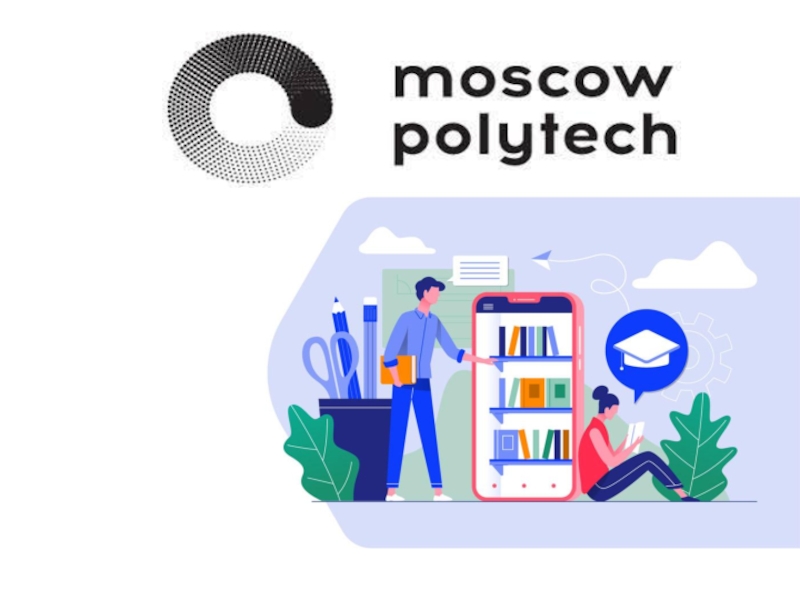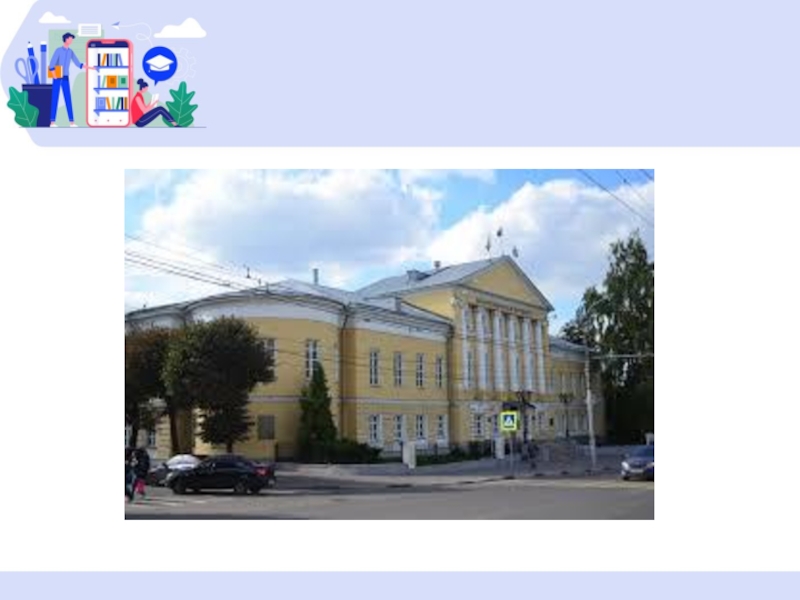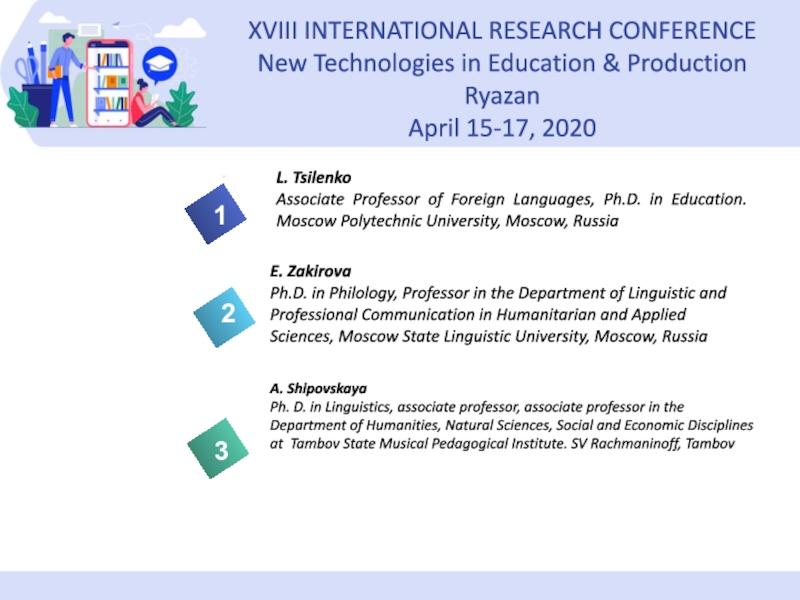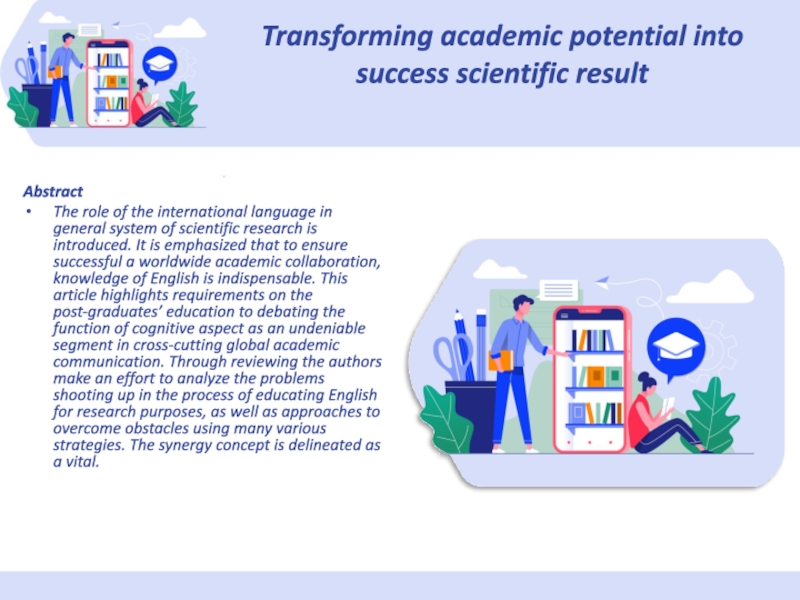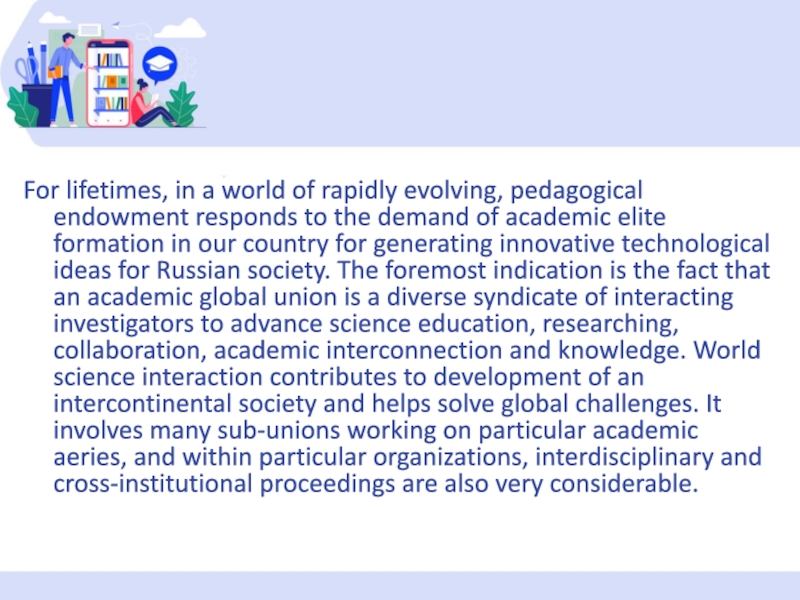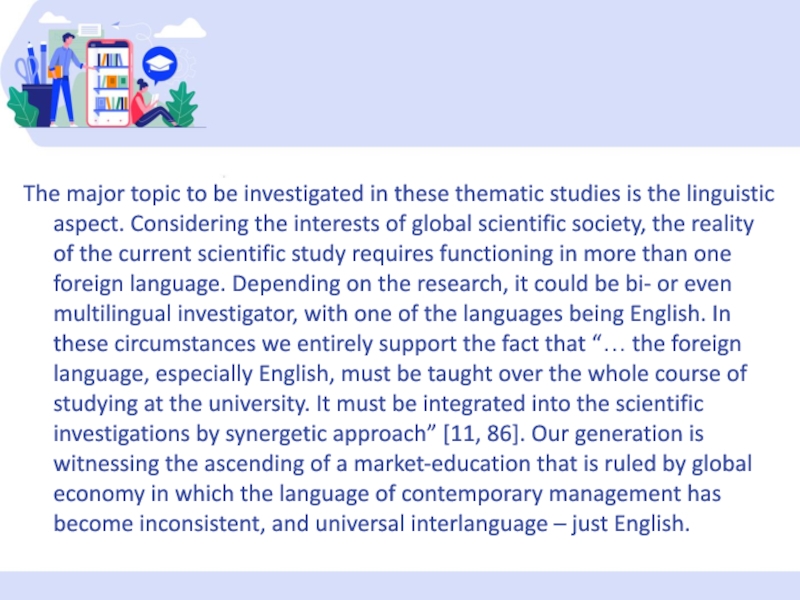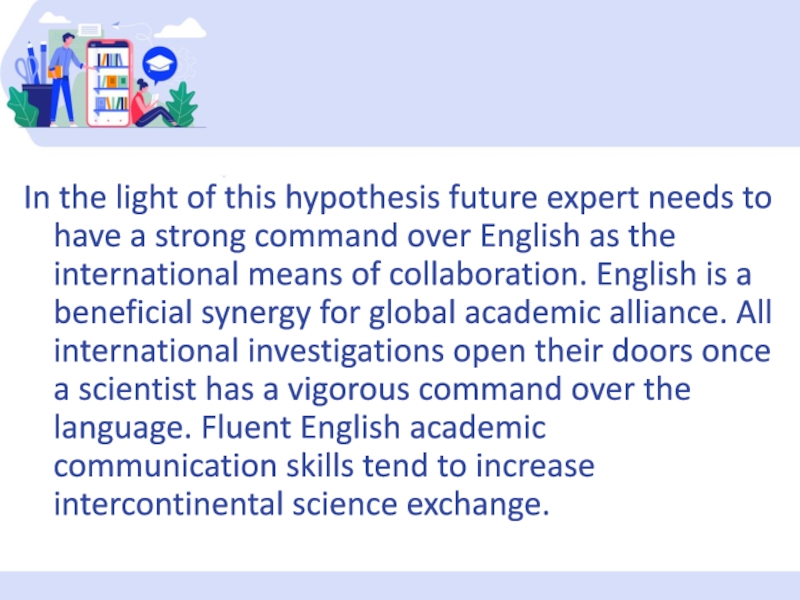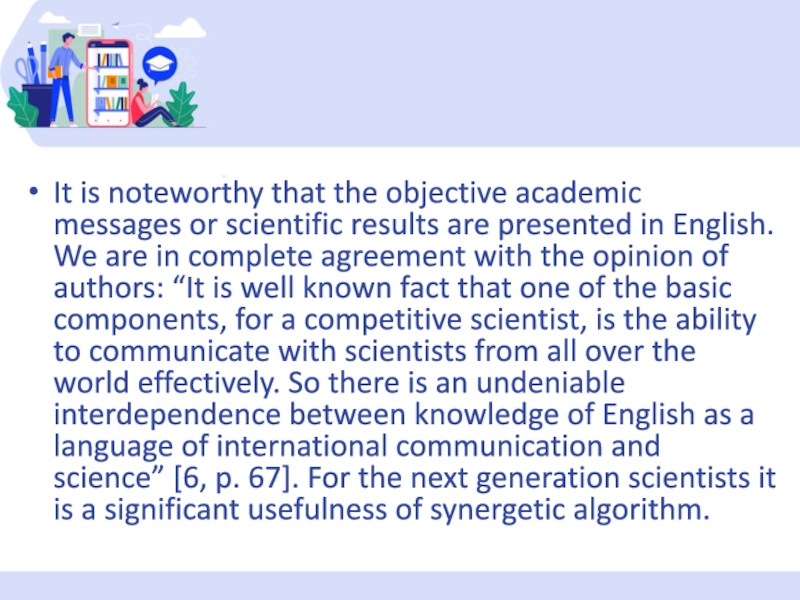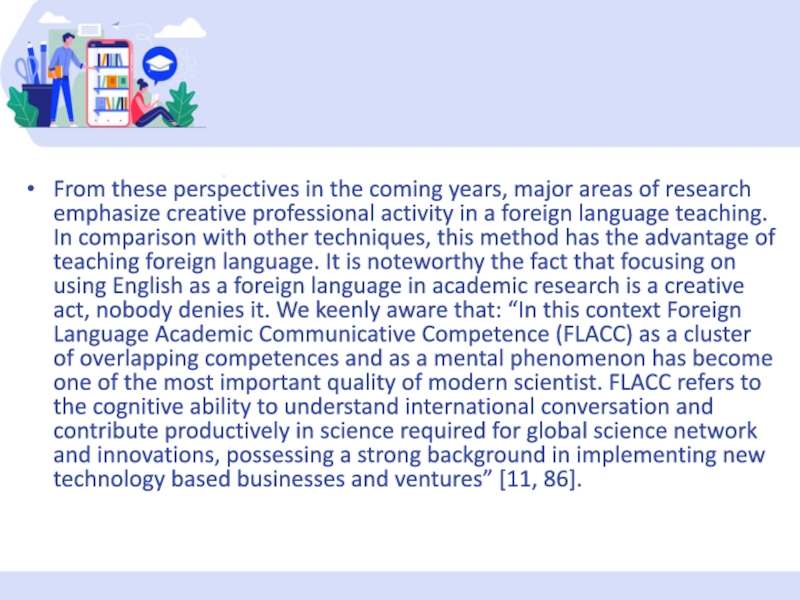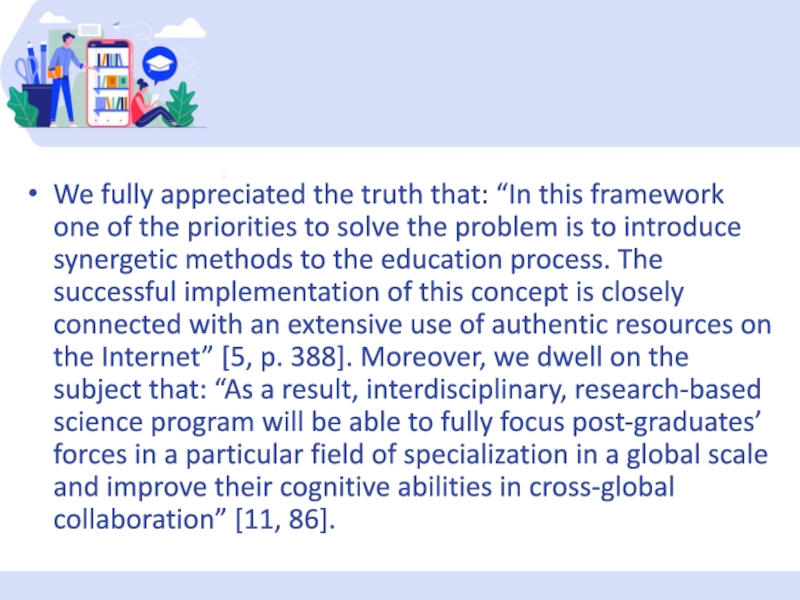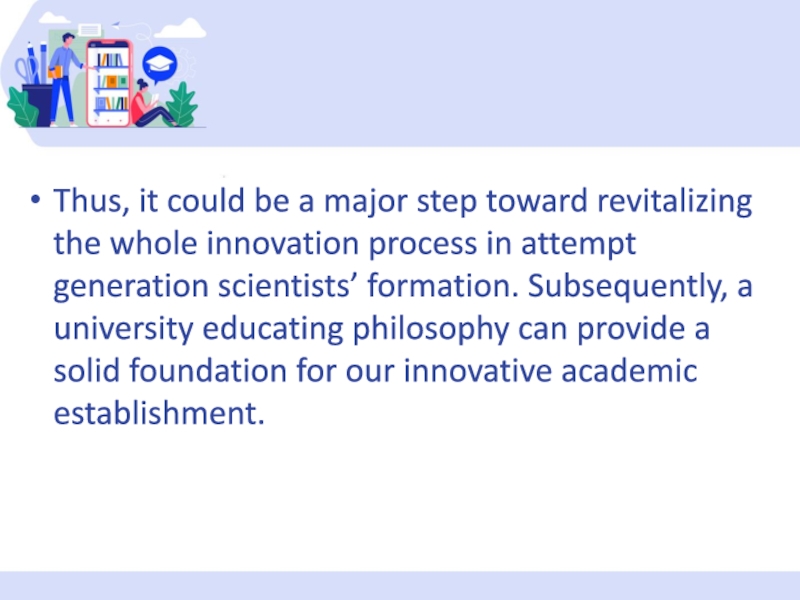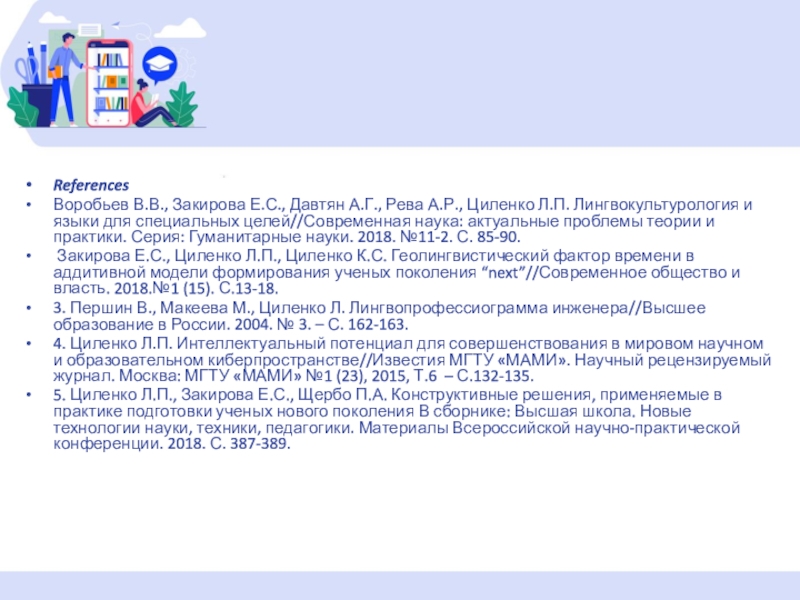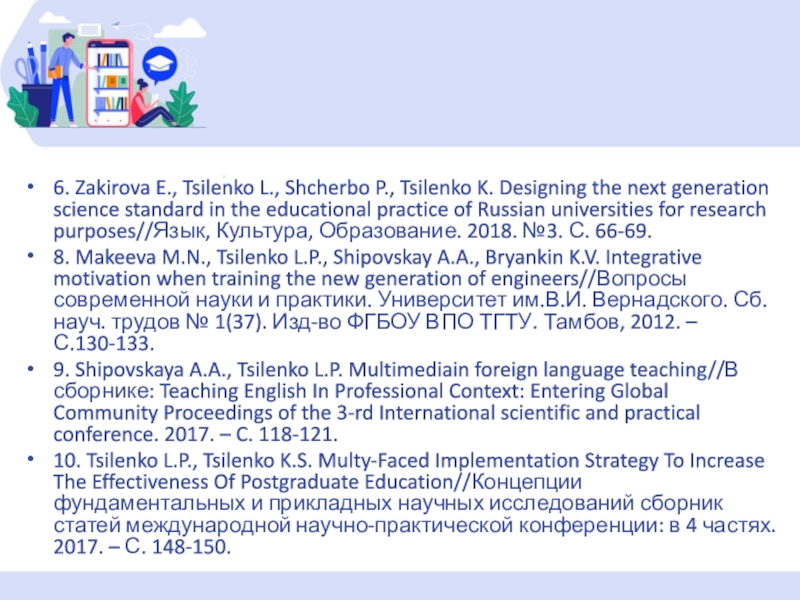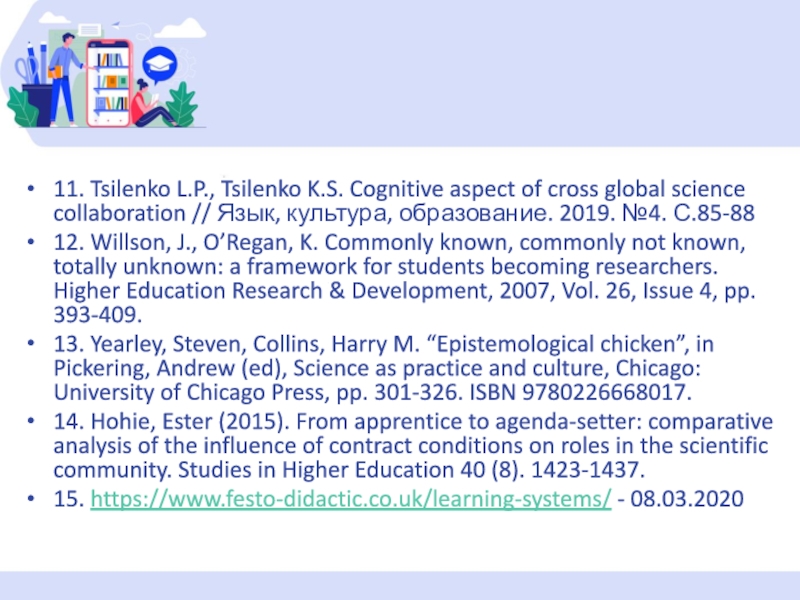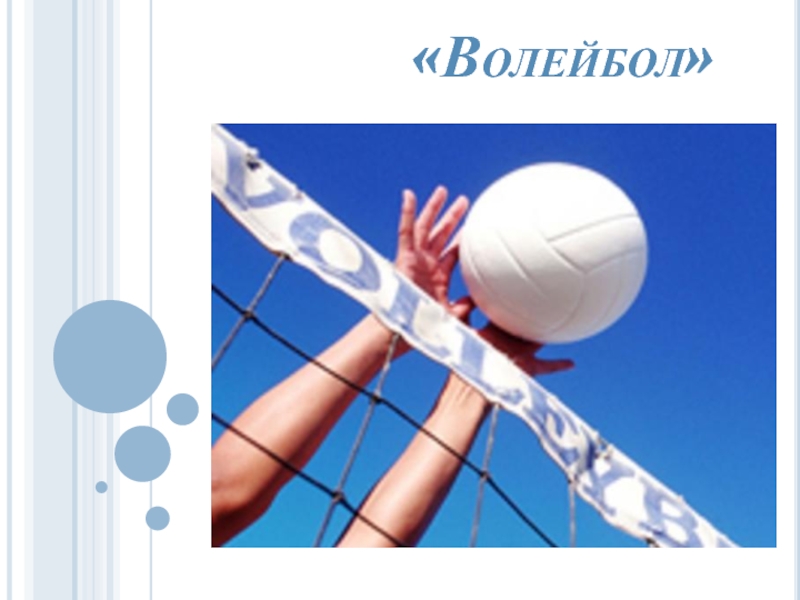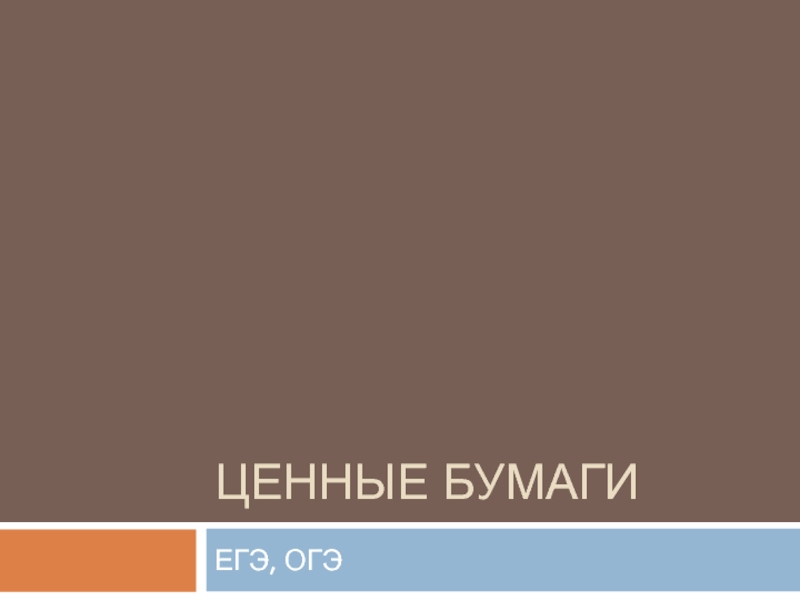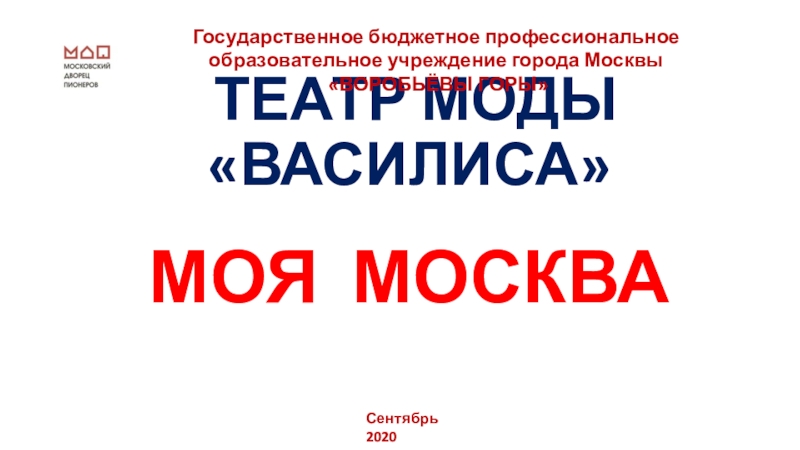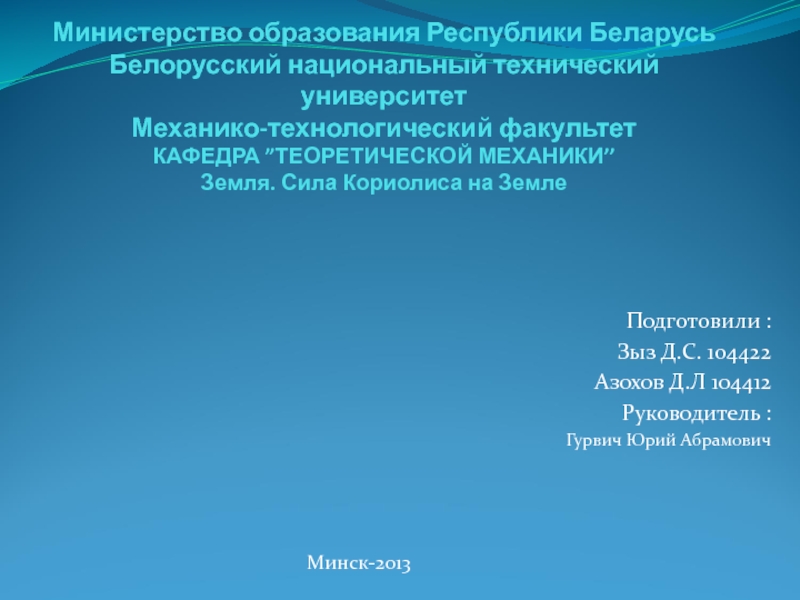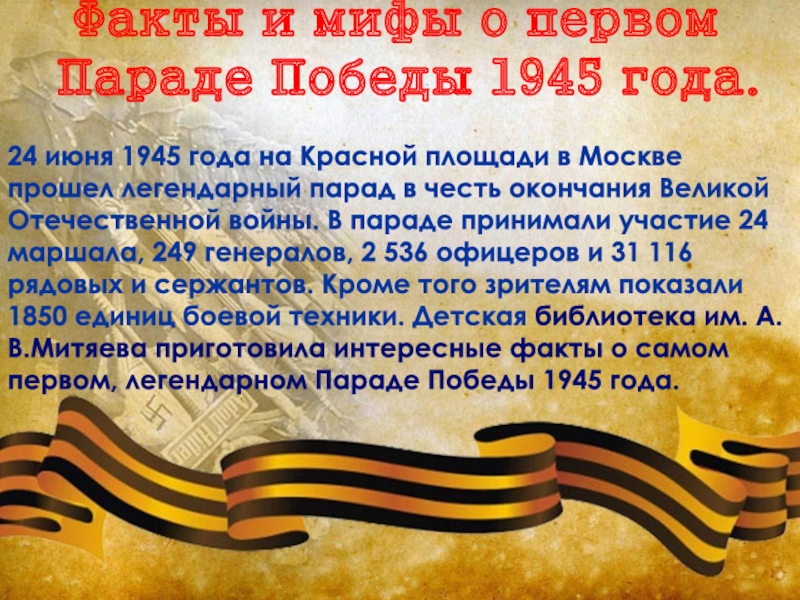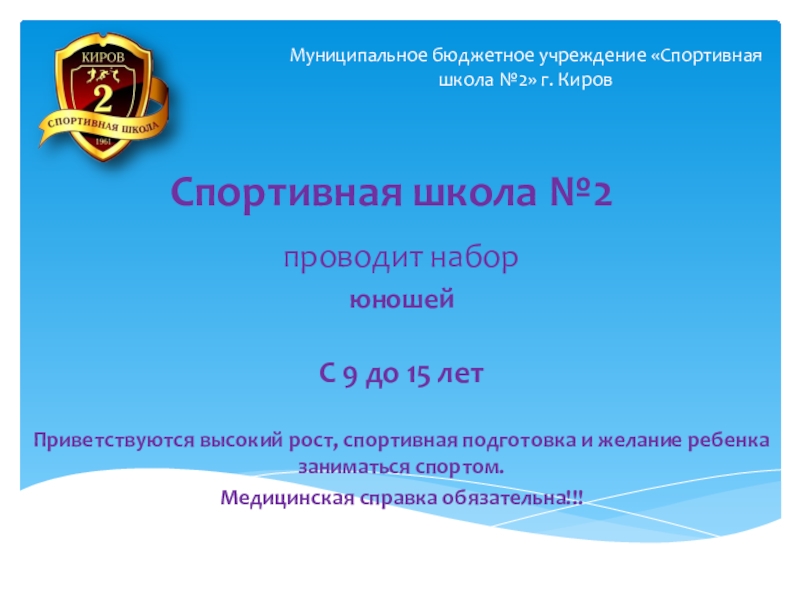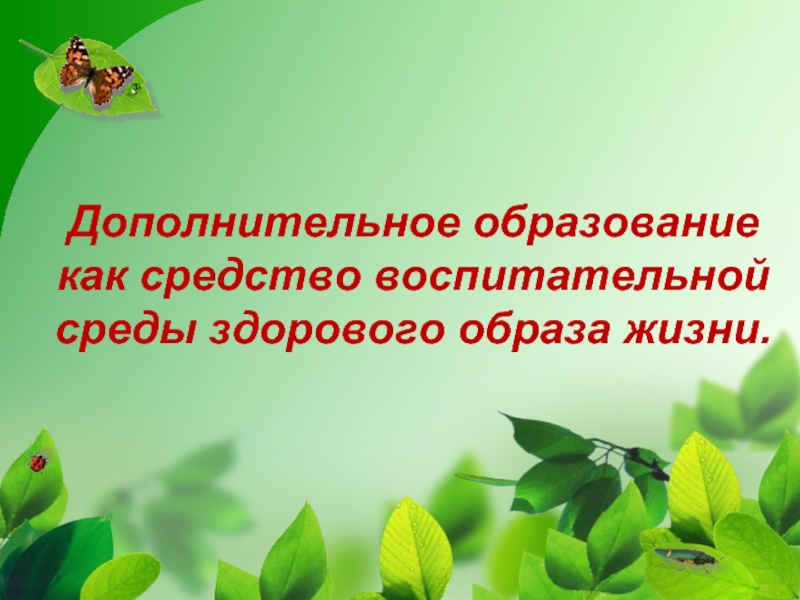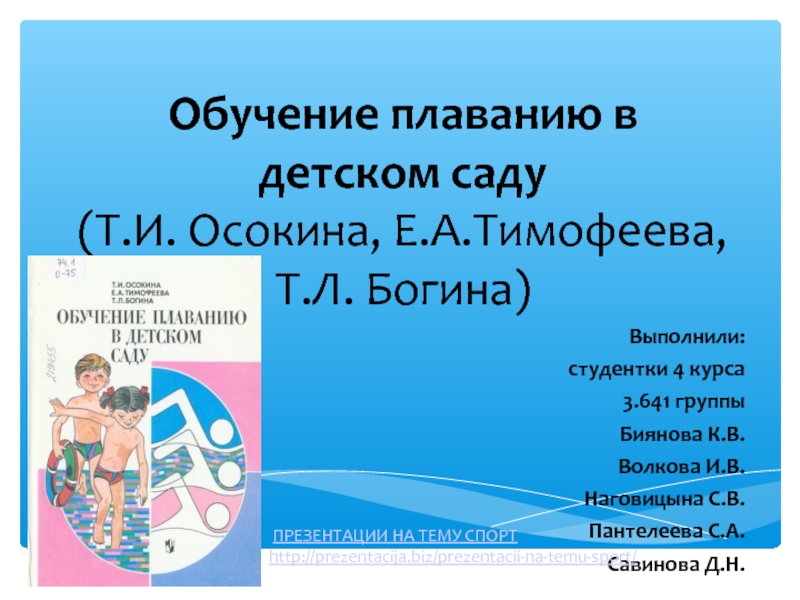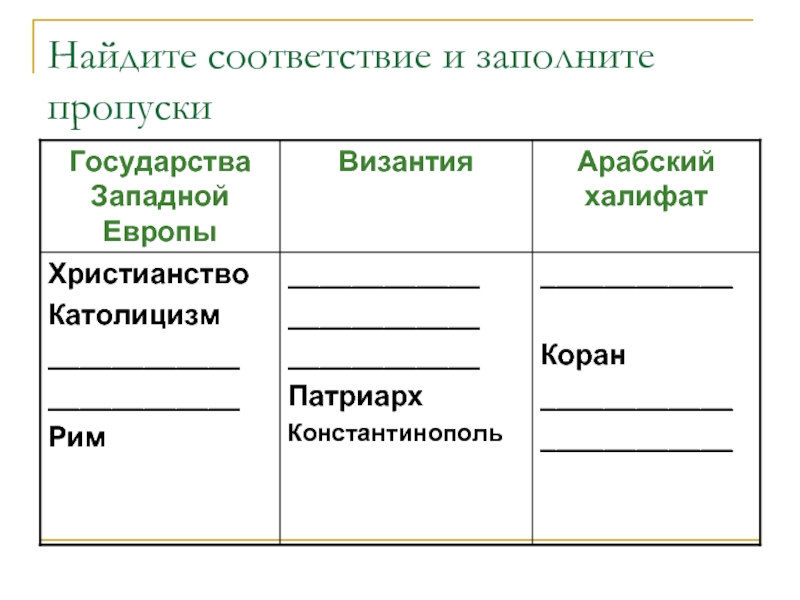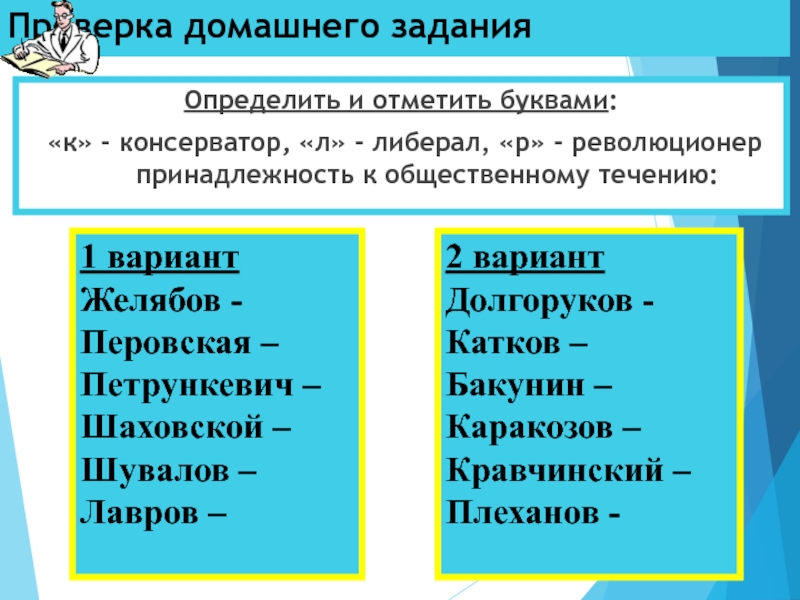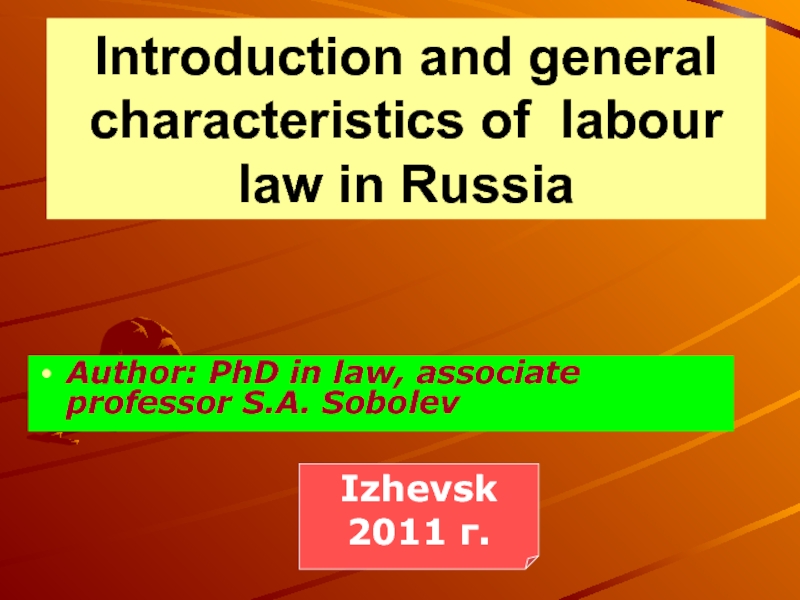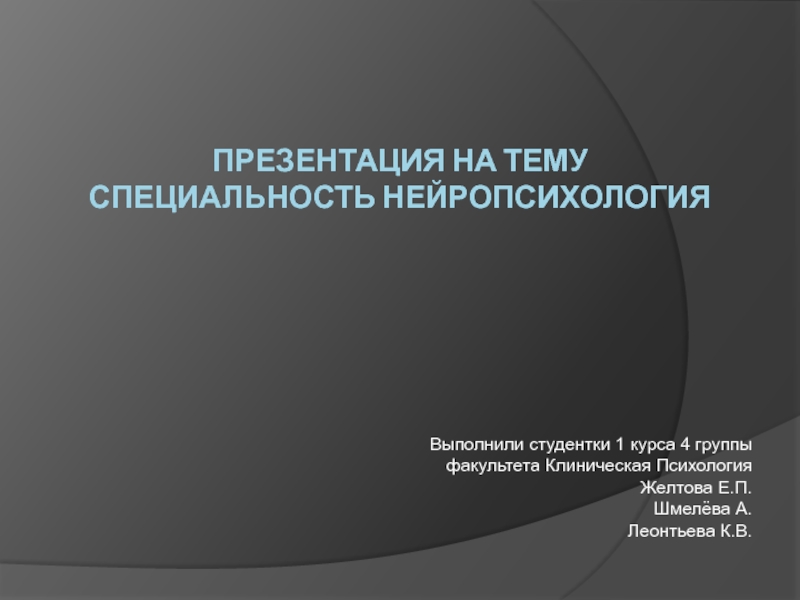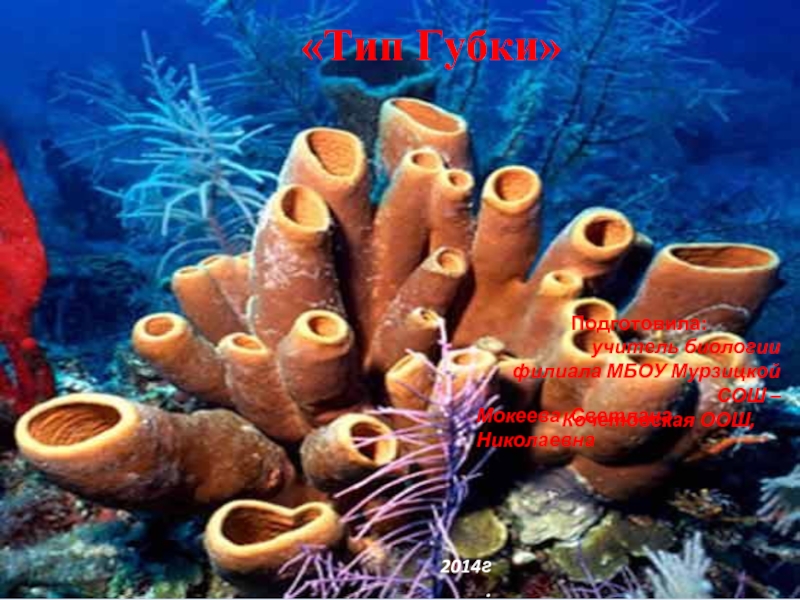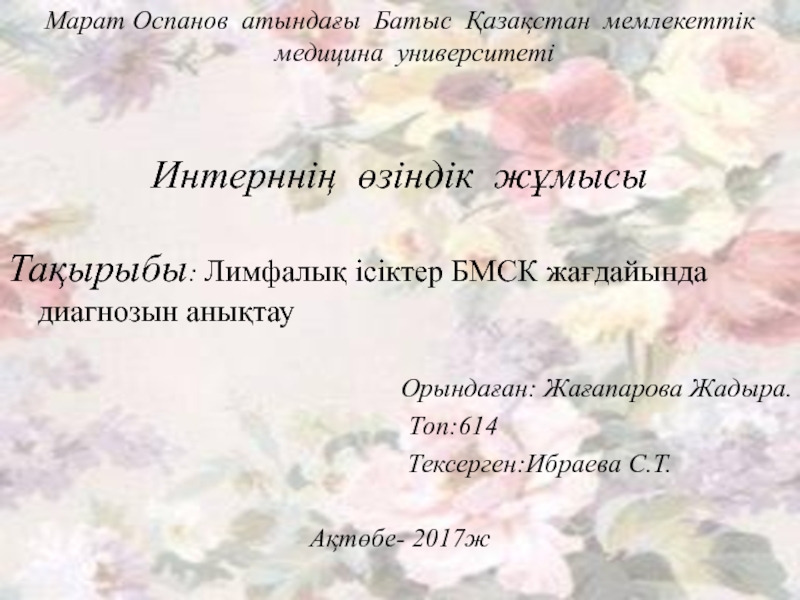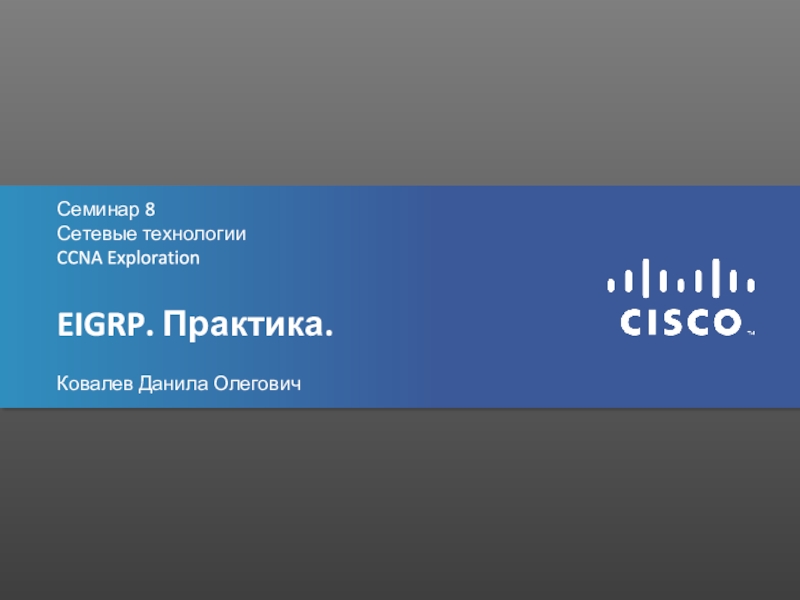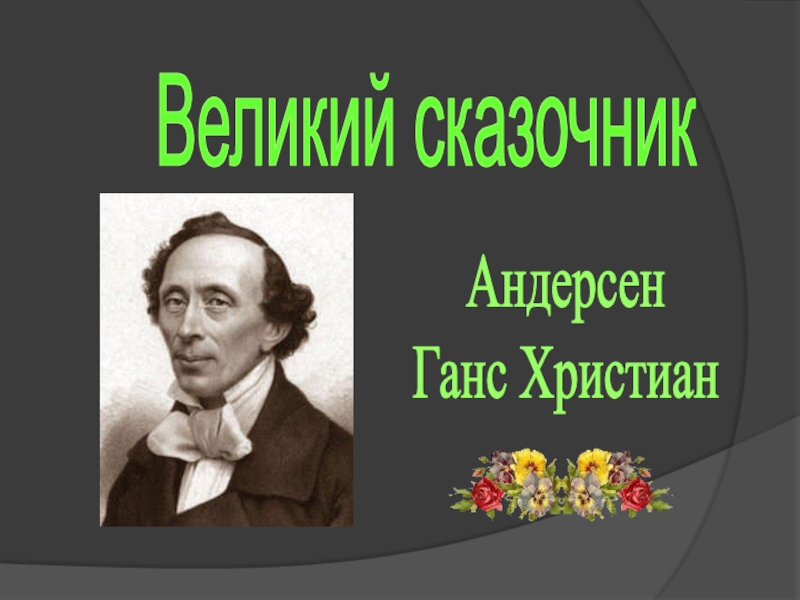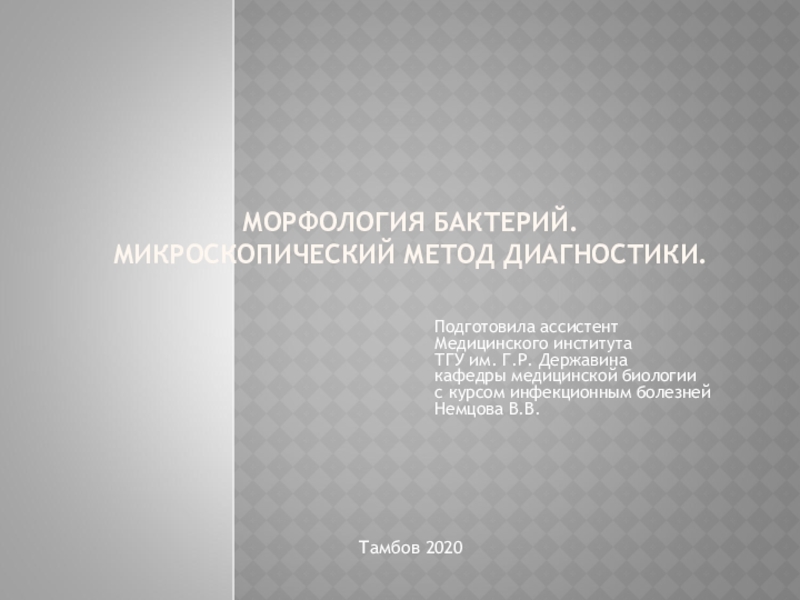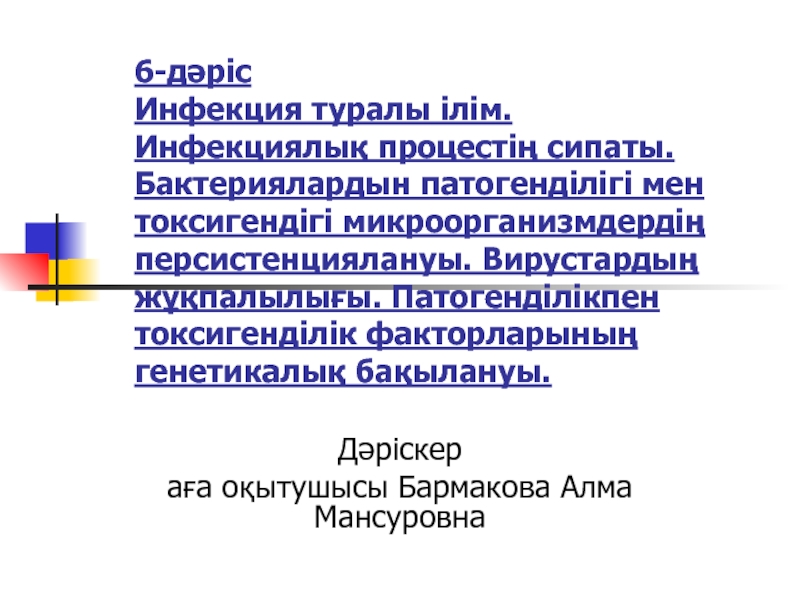Слайд 3
XVIII INTERNATIONAL RESEARCH CONFERENCE
New Technologies in Education & Production
Ryazan
April
15-17, 2020
L. Tsilenko
Associate Professor of Foreign Languages, Ph.D. in Education.
Moscow Polytechnic University, Moscow, Russia
1
2
3
E. Zakirova
Ph.D. in Philology, Professor in the Department of Linguistic and Professional Communication in Humanitarian and Applied Sciences, Moscow State Linguistic University, Moscow, Russia
A. Shipovskaya
Ph. D. in Linguistics, associate professor, associate professor in the Department of Humanities, Natural Sciences, Social and Economic Disciplines at Tambov State Musical Pedagogical Institute. SV Rachmaninoff, Tambov
Слайд 4
Transforming academic potential into success scientific result
Abstract
The role of the
international language in general system of scientific research is introduced.
It is emphasized that to ensure successful a worldwide academic collaboration, knowledge of English is indispensable. This article highlights requirements on the post-graduates’ education to debating the function of cognitive aspect as an undeniable segment in cross-cutting global academic communication. Through reviewing the authors make an effort to analyze the problems shooting up in the process of educating English for research purposes, as well as approaches to overcome obstacles using many various strategies. The synergy concept is delineated as a vital.
Слайд 5For lifetimes, in a world of rapidly evolving, pedagogical endowment
responds to the demand of academic elite formation in our
country for generating innovative technological ideas for Russian society. The foremost indication is the fact that an academic global union is a diverse syndicate of interacting investigators to advance science education, researching, collaboration, academic interconnection and knowledge. World science interaction contributes to development of an intercontinental society and helps solve global challenges. It involves many sub-unions working on particular academic aeries, and within particular organizations, interdisciplinary and cross-institutional proceedings are also very considerable.
Слайд 6The major topic to be investigated in these thematic studies
is the linguistic aspect. Considering the interests of global scientific
society, the reality of the current scientific study requires functioning in more than one foreign language. Depending on the research, it could be bi- or even multilingual investigator, with one of the languages being English. In these circumstances we entirely support the fact that “… the foreign language, especially English, must be taught over the whole course of studying at the university. It must be integrated into the scientific investigations by synergetic approach” [11, 86]. Our generation is witnessing the ascending of a market-education that is ruled by global economy in which the language of contemporary management has become inconsistent, and universal interlanguage – just English.
Слайд 7In the light of this hypothesis future expert needs to
have a strong command over English as the international means
of collaboration. English is a beneficial synergy for global academic alliance. All international investigations open their doors once a scientist has a vigorous command over the language. Fluent English academic communication skills tend to increase intercontinental science exchange.
Слайд 8It is noteworthy that the objective academic messages or scientific
results are presented in English. We are in complete agreement
with the opinion of authors: “It is well known fact that one of the basic components, for a competitive scientist, is the ability to communicate with scientists from all over the world effectively. So there is an undeniable interdependence between knowledge of English as a language of international communication and science” [6, p. 67]. For the next generation scientists it is a significant usefulness of synergetic algorithm.
Слайд 9From these perspectives in the coming years, major areas of
research emphasize creative professional activity in a foreign language teaching.
In comparison with other techniques, this method has the advantage of teaching foreign language. It is noteworthy the fact that focusing on using English as a foreign language in academic research is a creative act, nobody denies it. We keenly aware that: “In this context Foreign Language Academic Communicative Competence (FLACC) as a cluster of overlapping competences and as a mental phenomenon has become one of the most important quality of modern scientist. FLACC refers to the cognitive ability to understand international conversation and contribute productively in science required for global science network and innovations, possessing a strong background in implementing new technology based businesses and ventures” [11, 86].
Слайд 10We fully appreciated the truth that: “In this framework one
of the priorities to solve the problem is to introduce
synergetic methods to the education process. The successful implementation of this concept is closely connected with an extensive use of authentic resources on the Internet” [5, p. 388]. Moreover, we dwell on the subject that: “As a result, interdisciplinary, research-based science program will be able to fully focus post-graduates’ forces in a particular field of specialization in a global scale and improve their cognitive abilities in cross-global collaboration” [11, 86].
Слайд 11Thus, it could be a major step toward revitalizing the
whole innovation process in attempt generation scientists’ formation. Subsequently, a
university educating philosophy can provide a solid foundation for our innovative academic establishment.
Слайд 12References
Воробьев В.В., Закирова Е.С., Давтян А.Г., Рева А.Р., Циленко Л.П.
Лингвокультурология и языки для специальных целей//Современная наука: актуальные проблемы теории
и практики. Серия: Гуманитарные науки. 2018. №11-2. С. 85-90.
Закирова Е.С., Циленко Л.П., Циленко К.С. Геолингвистический фактор времени в аддитивной модели формирования ученых поколения “next”//Современное общество и власть. 2018.№1 (15). С.13-18.
3. Першин В., Макеева М., Циленко Л. Лингвопрофессиограмма инженера//Высшее образование в России. 2004. № 3. – С. 162-163.
4. Циленко Л.П. Интеллектуальный потенциал для совершенствования в мировом научном и образовательном киберпространстве//Известия МГТУ «МАМИ». Научный рецензируемый журнал. Москва: МГТУ «МАМИ» №1 (23), 2015, Т.6 – С.132-135.
5. Циленко Л.П., Закирова Е.С., Щербо П.А. Конструктивные решения, применяемые в практике подготовки ученых нового поколения В сборнике: Высшая школа. Новые технологии науки, техники, педагогики. Материалы Всероссийской научно-практической конференции. 2018. С. 387-389.
Слайд 136. Zakirova E., Tsilenko L., Shcherbo P., Tsilenko K. Designing
the next generation science standard in the educational practice of
Russian universities for research purposes//Язык, Культура, Образование. 2018. №3. С. 66-69.
8. Makeeva M.N., Tsilenko L.P., Shipovskay A.A., Bryankin K.V. Integrative motivation when training the new generation of engineers//Вопросы современной науки и практики. Университет им.В.И. Вернадского. Сб. науч. трудов № 1(37). Изд-во ФГБОУ ВПО ТГТУ. Тамбов, 2012. – С.130-133.
9. Shipovskaya A.A., Tsilenko L.P. Multimediain foreign language teaching//В сборнике: Teaching English In Professional Context: Entering Global Community Proceedings of the 3-rd International scientific and practical conference. 2017. – C. 118-121.
10. Tsilenko L.P., Tsilenko K.S. Multy-Faced Implementation Strategy To Increase The Effectiveness Of Postgraduate Education//Концепции фундаментальных и прикладных научных исследований сборник статей международной научно-практической конференции: в 4 частях. 2017. – С. 148-150.
Слайд 1411. Tsilenko L.P., Tsilenko K.S. Cognitive aspect of cross global
science collaboration // Язык, культура, образование. 2019. №4. С.85-88
12. Willson,
J., O’Regan, K. Commonly known, commonly not known, totally unknown: a framework for students becoming researchers. Higher Education Research & Development, 2007, Vol. 26, Issue 4, pp. 393-409.
13. Yearley, Steven, Collins, Harry M. “Epistemological chicken”, in Pickering, Andrew (ed), Science as practice and culture, Chicago: University of Chicago Press, pp. 301-326. ISBN 9780226668017.
14. Hohie, Ester (2015). From apprentice to agenda-setter: comparative analysis of the influence of contract conditions on roles in the scientific community. Studies in Higher Education 40 (8). 1423-1437.
15. https://www.festo-didactic.co.uk/learning-systems/ - 08.03.2020
